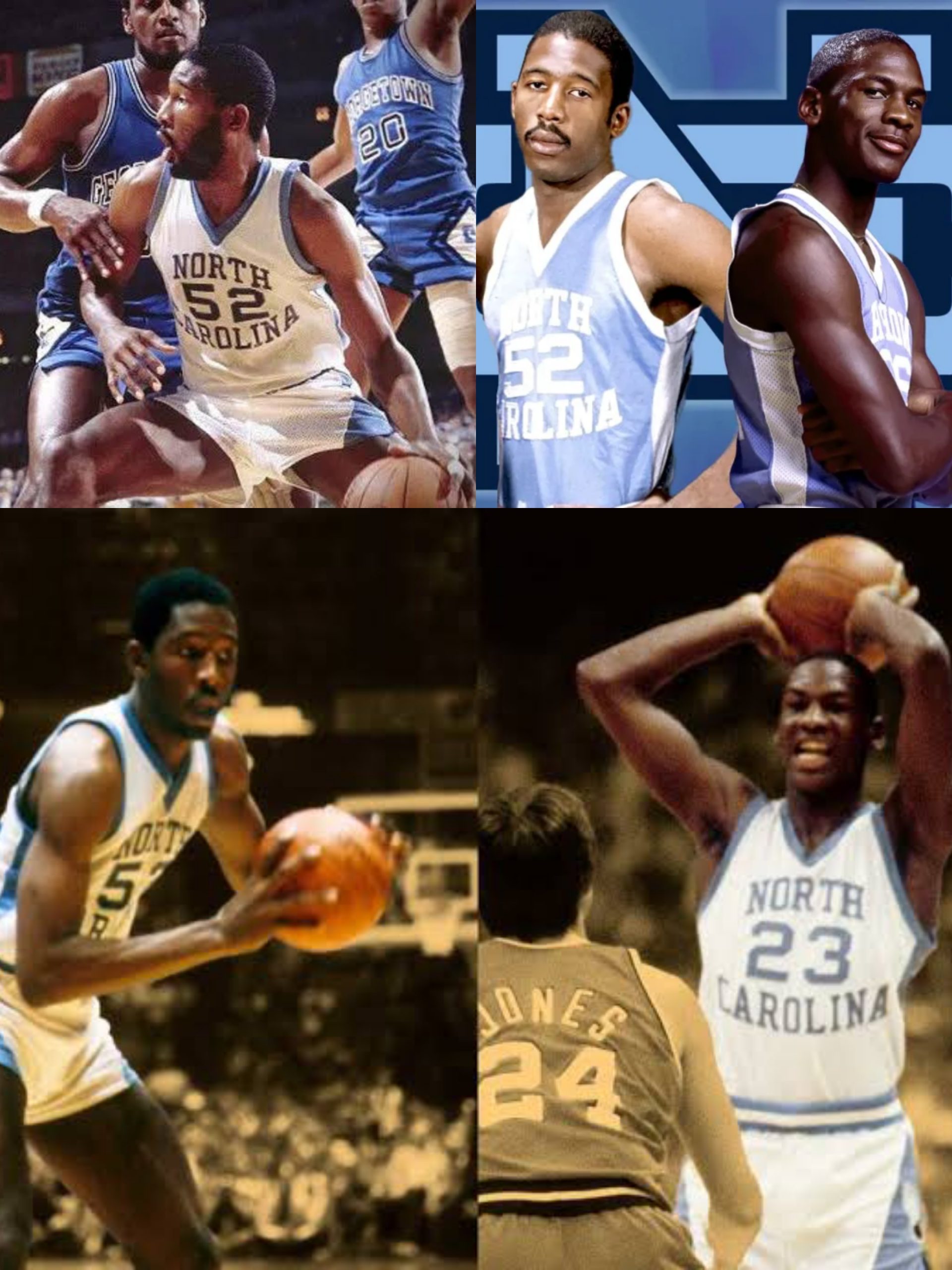Bold UNC Take That Shakes Up Chapel Hill: Was ‘Big Game James’ Worthy of GOAT Status Over Jordan as a Tar Heel — And Did Worthy, Not MJ, Truly Deliver UNC’s Championship Glory?—The UNC Debate That Still Divides Chapel Hill
Chapel Hill has never been short of legends. From the rafters of the Dean Dome to the echoes of Franklin Street, the University of North Carolina’s basketball heritage is layered with names that shaped the very fabric of the sport. Yet, one debate continues to stir emotions more than four decades later: Was James Worthy — not Michael Jordan — the true catalyst of UNC’s 1982 national championship?
It’s a question that feels almost sacrilegious to ask in the age of Jordan’s global legacy. After all, His Airness became the face of basketball, revolutionizing the NBA, and embedding “Tar Heel pride” into every championship he lifted with the Chicago Bulls. But when narrowing the lens strictly to their time at Chapel Hill, many argue that “Big Game James” deserves equal — if not greater — credit for UNC’s ultimate breakthrough in 1982.
The Night That Changed Everything: UNC vs. Georgetown, 1982
The mythology of Jordan’s UNC career is built largely around one singular moment — the shot. With the Tar Heels trailing Georgetown in the closing seconds of the NCAA title game, a freshman Jordan calmly sank a 16-foot jumper from the left wing. That bucket, forever immortalized in highlight reels, sealed Dean Smith’s first national championship.
But for those who remember the game in full, the story is more layered. James Worthy, a 6’9” forward in his junior year, dominated the contest from start to finish. Worthy poured in 28 points on 13-of-17 shooting, relentlessly attacking the Hoyas inside, establishing himself as the best player on the floor. In many ways, Jordan’s shot was the exclamation point — but Worthy had written most of the story.
“Without James, we don’t even get to a point where Mike’s jumper matters,” said one UNC alum who attended the game. “He was unstoppable. He carried us.”
The Case for Worthy as the Real Hero
Worthy’s Tar Heel résumé is often overshadowed by what came after. Drafted No. 1 overall in 1982 by the Los Angeles Lakers, he went on to win three NBA titles and earn Finals MVP honors as part of the Showtime dynasty. But during his Carolina years, his dominance was undeniable:
-
1982 Final Four Most Outstanding Player
-
Consensus First-Team All-American
-
ACC Tournament Champion
-
Career averages of 14.5 points, 7.4 rebounds on exceptional efficiency
Critics of the “Jordan carried UNC” narrative point out that as a freshman, Jordan was still finding his role, while Worthy had already established himself as a force and a leader. His blend of power, finesse, and clutch play earned him the nickname “Big Game James” long before he donned purple and gold.
The Counterargument: Jordan’s Inevitable Ascension
Of course, dismissing Jordan’s impact is impossible. That 1982 jumper wasn’t just a winning shot — it was the moment the basketball world glimpsed greatness. Jordan’s confidence under pressure at 19 foreshadowed the relentless will to win that would later define his NBA career.
By his sophomore and junior years at UNC, Jordan became the face of the program, winning National Player of the Year in 1984. Fans argue that his trajectory was clear: Worthy may have dominated 1982, but Jordan was already beginning his march toward GOAT status.
“Worthy won us that championship, but Jordan gave UNC a mystique that still resonates today,” a longtime Tar Heel booster noted. “One wrote the ending, the other built the legend.”
A Debate That Still Divides Tar Heel Nation
Inside Chapel Hill, the Worthy vs. Jordan argument has become something of a barbershop staple. Older fans lean toward Worthy as the anchor of 1982; younger fans, raised on Jordan’s NBA mythology, see that championship through his shot alone.
The truth, perhaps, lies somewhere in the middle. Worthy was the best player on the floor in 1982, but Jordan’s moment cemented UNC’s legacy on a global stage. Both men were essential — one for delivering the game, the other for immortalizing it.
Even today, walking past the Dean Dome’s rafters, students, alumni, and historians continue the conversation. Who carried UNC to its first championship under Dean Smith? Was it the steady, dominant hand of “Big Game James”? Or was it the cold-blooded emergence of Michael Jordan, the freshman phenom?
Why the Debate Still Matters
This is more than a basketball argument. It’s about legacy, memory, and the way moments are remembered versus entire games. It’s about how history is written — highlight reels versus box scores, mythology versus reality.
As the 2025 Tar Heels prepare for another season, fans old and new will once again revisit 1982, arguing in dorm rooms, sports bars, and online forums. Was Worthy the true GOAT of that team? Or did Jordan’s single shot outweigh even the most dominant performance?
For Chapel Hill, the debate isn’t going away anytime soon. And maybe that’s what makes it beautiful.





























